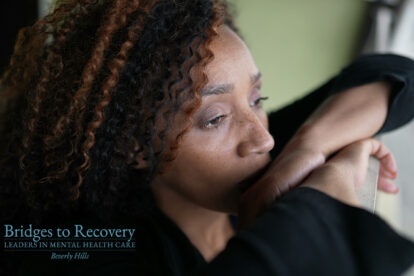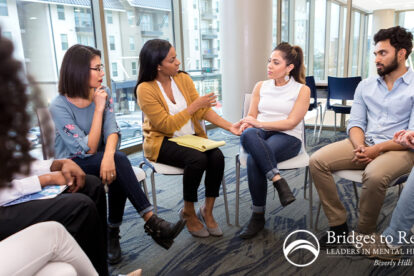A Vital Checklist for Families: Supporting Your Loved One’s Recovery

While it’s possible for an individual to recover alone, support is always best. Having the support of loved ones increases the chances of a successful recovery with no or fewer relapses. Family support is especially important because family members play a role, whether they realize it or not. Family should always be involved in the recovery plan to the extent allowed but should also work on their own mental health and prepare to support a loved one in recovery.
If you have a family member struggling with their mental health or substance use disorder, you just want them to get better. Professional care is essential and can lead to recovery, but it’s not the only thing your loved one needs. They also need your love and support, in practical ways.
You can get involved directly in their care program, get your own help, and prepare for their return home. Anything you can do to support a loved one during recovery will improve their chances of success.
Why Family Matters
Studies show that substance use disorder facilities that offer good family support have more successful recoveries and our outcomes show us exactly that. Studies look at specific types of support: emotional, psychological, physical, and vocational. People in recovery with these kinds of support for family had higher rates of recovery success.
The study also included psychoeducation for the family. This means the family members went through a program to learn more about addiction and how to support their loved one in care and recovery. Psychoeducation also contributed to greater recovery rates.
In other words, family matters. People struggling with addiction and who get professional help fare better with family support. And family can better support their loved ones with education and training.
Start By Getting Your Loved One Into Residential Care
The first, and absolutely essential, step in helping your loved one is to make sure they get professional, effective addiction treatment. For many, a residential facility is best. It allows them to focus on recovery without worrying about home, work, and family responsibilities.
This is a big hurdle for many families. It’s easy to sweep the problem under the rug. Even if you do decide to take action and try to get your loved one into a residential facility, they may not agree.
It’s best to intervene and raise the subject as early as possible. Experts suggest approaching the topic in a positive way. Let your family member know you love them and want to help. Rather than blaming or getting angry, suggest that substance abuse is the problem, and it’s yours to face together.
Call for a Free Confidential Assessment.
877-727-4343The Family Support Checklist
Once you have convinced your loved one to get professional help and have found a great facility, you still have work to do. Your family member needs your ongoing, active support. Here are some of the most important things you can do as a family to help and be supportive:
- Stay involved. It’s not enough to simply get a loved one to go to a facility and then to walk away and not think about it for weeks or months. The best thing you can do after that first big hurdle is to get involved. This means many things, which may vary by recovery center and by individual. It could be actively participating in therapy sessions, showing up for family days, or engaging in separate family events like therapy or psychoeducation. Being involved is active support but also shows your loved one that you care and are invested in their recovery.
- Learn about substance use disorder. The more you know, the more you can help. A professional psychoeducation program is best. It will teach you about addiction, what your loved one is going through, and the role of family. If you can’t find this type of program, do your own research to learn more.
- Attend family support groups. Avoid thinking of recovery as all about the individual with a substance use disorder. Addiction is a family disease, which means everyone is impacted and involved. By getting support for the entire family, you support your loved one’s recovery. Taking care of you is important, too.
- Participate in therapy. If your loved one’s facility offers family sessions, take advantage of them. As a family disease, addiction infiltrates every relationship. By participating in therapy together, you learn how to change the destructive habits and patterns that may have enabled your loved one’s substance abuse in the past. Working on your relationships will help you start fresh with more supportive, positive patterns when they leave the facility.
- Manage your own mental health. Support groups and family therapy may not be enough for some family members. Consider one-on-one therapy to boost your mental health and to be ready to support your loved one when they come back home.
- Send messages of support. Residential centers have varying rules about contact with family. For instance, they may require you to stay away and out of contact for the first one or two weeks. After that time period, send messages to your loved one so they know you’re thinking of them and cheering on their recovery. If phone contact is not allowed, send letters. Keep your messages simple and positive. Don’t try to work out any family issues here; save those for therapy sessions. Care packages are also usually welcome in recovery.
- Take care of practical matters. So that your loved one can focus on their recovery without worrying, help out with things at home. If they have children or pets, help with care. They may also worry about money. If you can afford to, help out with things like rent or getting them back on their feet after leaving the facility.
- Prepare for their return. Returning to the same setting in which a loved one misused drugs or alcohol can trigger a relapse. Old habits come to the forefront when the environment is exactly the same. If possible, prepare a new location for your loved one, at your home for instance, even if it’s only temporary. If they must return to the same place, make some changes before they arrive. Clean up, change some décor, and get rid of any alcohol or drug paraphernalia. Even small changes to a space can minimize triggers.
Treating mental health and substance use disorders in an individual rather than in the context of family has proven less effective overall. It ignores the effects on everyone. When you don’t address your own needs in this situation, it’s easy to fall back into negative patterns.
Family-centered recovery is also important because it provides needed support for the individual with substance use disorder or a mental health issue. Be there for your loved one in care, both for them and for you. Involving everyone is best for the entire family.






